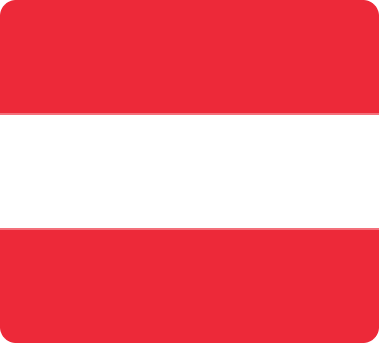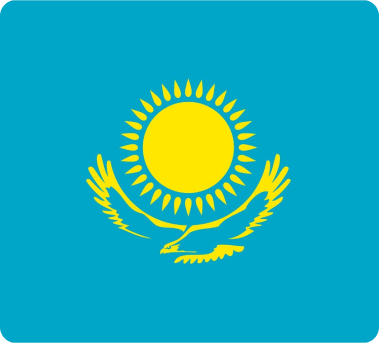Invest in bonds with as low as $1000
- Increase the reliability of your investment portfolio
- Earn regular interest income
- If bonds are up in price, sell them on the stock exchange and record additional profits!
Current investment ideas
Corporate bonds
Government bonds
Companies issue these securities to raise money for business development. By buying bonds, you give the company debt at interest.
Bond prices and yields may change. To find out the current price, contact your manager or fill out an application.Filters

Consumer staples
Coupon rate — 4,7%
USDMondelez International bonds

Mondelez International is the US multinational company, manufacturer of various snacks, chocolate, confectionery and other food products. The most famous brands: OREO, MILKA, TOBLERONE, ALPEN GOLD, TUC, DIROL, "Barney the Bear" and others. Recommended bond purchase amount: from $50,000. Coupon rate: 2.75%.
April 30, 2030
Technology sector
Coupon rate — 4,9%
USDUber Technologies Inc. bonds

Uber Technologies Inc. is the US company that created a mobile application of the same name for finding, calling and paying for taxis or private drivers and delivering food. Recommended purchase amount: from $50,000. Coupon rate: 4% per annum.
August 15, 2029
Consumer Discretionary
Coupon rate — 4,6%
USDMcDonald's bonds

McDonald's is one of the largest US corporations in the field of public catering. Fast food restaurants of the brand operate under the franchise system in 120 countries around the world. Recommended bond purchase amount: from $50,000. Coupon rate: 3.6%.
July 01, 2030
Basic Materials
Coupon rate — 6,4%
USDFortescue bonds

Fortescue Ltd (until July 2023 Fortescue Metals Group, FMG) is an Australian mining company and the world's fourth largest producer of iron ore. Recommended purchase amount: from $50,000. Coupon rate: 4.375% per annum.
April 1, 2031
Oil and gas sector
Coupon rate — 5,7%
USDSantos Finance Ltd bonds
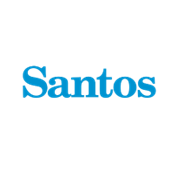
Santos Limited, an Australian energy company, is one of the largest domestic gas suppliers in Australia and a leading LNG supplier in the Asia-Pacific region. Recommended purchase amount: $200,000. Coupon rate: 3.649% per annum.
April 29, 2031
Coupon rate — 5,9%
USDBonds of JSC NC KazMunayGas
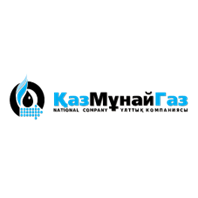
"KazMunayGas" National Company is a national leader in the oil and gas industry of Kazakhstan. IT is an operator for the exploration, production, processing and transportation of hydrocarbons. Recommended bond purchase amount: from $50,000. Coupon rate: 5.375%.
April 24, 2030
Coupon rate — 6,5%
USDBP Capital Markets PLC subordinated bonds
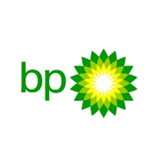
BP is a British oil and gas company, one of the largest in the world in this area. BP operates in all segments of the oil and gas industry, including exploration and production, refining, sales and marketing, power generation and trading operations. Recommended purchase amount: $200,000. Coupon rate: 4.375% per annum.
Call option term: March 18, 2035
Industrial Sector
Coupon rate — 4,8%
USDBAE Systems bonds

BAE Systems is the largest defense company in the UK. It is engaged in developments in the field of weapons, information security, and aerospace. Recommended purchase amount: from $50,000. Coupon rate: 3.4% per annum.
April 15, 2030
National Governments sell sovereign debt to finance public procurement, public debt, social payments and other large-scale purposes. These bonds are highly reliable: when you buy them, you borrow money from a whole country.
Bond prices and yields may change. To find out the current price, contact your manager or fill out an application.Coupon rate — 1% minus inflation
USDU.S. Treasury Inflation-Protected Securities

Treasury Inflation Protected Securities (TIPS) protect the investor's capital from inflationary depreciation. The nominal value of the bond and coupon payments increase in price along with the growth of consumer prices and retain their purchasing power.
January 15, 2027
Coupon rate — 3,9%
USDU.S. Sovereign Bonds in USD

The United States is a risk-free issuer with the following credit ratings: AAA/Negative by Moody's, AA+/Stable by S&P, and AA+/Stable by Fitch. The US sovereign rating is based on its diversified and resilient economy, flexible monetary policy, and unique status as an issuer of the world's leading reserve currency.
January 31, 2029
Coupon rate — 5,2%
USDDollar-denominated sovereign bonds of Kazakhstan

The Republic of Kazakhstan has an investment grade rating of all major agencies and a positive outlook that indicates an increased probability of a rating upgrade by 2 out of 3 agencies (Baa2/Positive by Moody's, BBB/Stable by S&P, and BBB-/Positive by Fitch).
October 14, 2044
Coupon rate — 6%
USDDollar-denominated sovereign bonds of Uzbekistan

Uzbekistan has a BB-rating of all three rating agencies and a stable outlook (Ba3/Stable by Moody's, BB-/Stable by S&P, and BB-/Stable by Fitch) that indicate further economic growth and a strong external economic position.
October 12, 2028
Coupon rate — 2,3%
EUREuro-denominated sovereign bonds of Spain

Uzbekistan has a BB-rating of all three rating agencies and a stable outlook (Ba3/Stable by Moody's, BB-/Stable by S&P, and BB-/Stable by Fitch) that indicate further economic growth and a strong external economic position.
July 30, 2029
How much can you make with bonds?
Yield of transactions with bonds sometimes does not equal earnings on shares.
If the price of the bonds has gone up well, you may not wait for the repayment of the bonds. It is better to sell them in open auctions and fix additional profits!

Here are some examples:
Beginners often ask...
Bonds are debt securities that are traded on the stock exchange. At its core, one bond is like a receipt that confirms that someone took money from you and is obliged to give it with interest.
When you buy a bond, you lend money to a certain company or even to the government of an entire country. In return, the «borrower» undertakes to pay you interest regularly and to return the entire amount of the investments after a predetermined term.
It is not quite right to compare bonds with shares in the «better-worse» style. These instruments can complement each other in one investment portfolio.
Bond yields are on average lower than equities. However, they may be higher than bank deposits.
Bond risk is also traditionally lower: their price fluctuates less on the stock market. Plus, if the bonds are held by the end of their term, the investor will get back the full amount of the investments, even if the market price of the bonds by that time falls. Bonds are therefore considered a defensive instrument. They should be added to the investment portfolio to increase its reliability - especially in troubled periods in the market.
The result of investing in bonds is more predictable, because even before the purchase, you can know many factors: maturity, fixed interest rate, yield.
The issuer is a “debtor” who issued bonds to sell them and get money to realize their goals. Issuers can be companies, city authorities and governments.
Nominal value is the amount of debt per bond. If you multiply the value by the total number of bonds in the issue, you can find out how much money the issuer is borrowing at the that time.
In other words, the face value is the initial value at which the issuer offers bonds to investors. On the Kazakh market, the value of one bond is most often 1000 tenge. On foreign markets - $1000, although there are bonds in the value of $100,000. When bonds start trading on the stock exchange, their price may fluctuate above or below face value. But at the end of the term the issuer returns the investor money precisely at the face value of the bonds.
The price of bonds on the stock exchange is usually expressed as a percentage of face value. When in quotes you see the figure 95.3, and the value of the bond - 1000 tenge, this means that now the bond costs 95.3% of 1000 tenge. That is 0.953*1000 = 953 tenge.
This is when the company has to pay the bondholder and return him the value of each bond. The maturity date is usually known in advance. On that day the bonds disappear from your account, and instead money appears. But you may also not have to wait for the repayment and sell the bonds on the market during the working time of the exchange.
These are regular interest payments that the investor receives from the issuer. In other words, this is the main source of your stable passive bond income. The annual coupon rate is usually known immediately and fixed for the entire term of the bond. Although there is a “floating coupon rate”. In most cases, coupons are paid two or four times a year. Most often, companies pay them every three months.
This is the coupon portion that’s accrued, but not yet paid, because there’s still time until the due date. This indicator is taken into account so that bonds can be bought and sold between coupon payments without losing the reward.
If the company pays coupons once every three months, and you have held the bond for only 1.5 months since the last payment, you still deserve half the coupon for that time - it will not be lost. When you decide to sell the bond, the buyer together with the market value of the bond at that time will also pay you ACI. The ACI itself resets at the time of the coupon payment and then gradually grows to the next payout date - until it reaches the full coupon size.
This is how much you can earn on bonds shown as a percentage. But do not confuse the yield with coupons. If the coupon rate is fixed, the yield can change. It depends on the coupon rate, the market price of the bonds, the time of purchase and ACI.
There is an important feature: when the price of a bond falls, its yield rises. Conversely, when the price of a bond rises, the yield falls.
Credit ratings from agencies like Standard & Poor’s, Fitch, or Moody’s affect bond yields through reliability.
The yield of the bonds with rating «AAA» will be obviously lower because the issuer is considered very reliable. The issuer doesn’t have to overpay investors to raise their funds. Investors themselves see that to give such a borrower money is almost a risk-free opportunity, which can make a little money.
The yield of bonds with “BBB” rating will be higher. These are still very reliable issuers, but rating agencies see more risk factors for them. For this risk investors want to earn more income on their investments.
And so on - the lower the rating, the higher the bond yields.
About the company
Freedom Broker is an international investment company, represented in 21 countries: Kazakhstan, Uzbekistan, Kyrgyzstan, Cyprus, Germany, the United Kingdom, Greece, Spain, France, Poland, Austria, Bulgaria, Lithuania, Italy, Netherlands, Belgium, the United States, Turkey, Armenia, Azerbaijan, and the United Arab Emirates.
The company is part of the international investment group Freedom Holding Corp. The group has an equity of $1,15 billion.
The holding company’s shares are listed on the US stock exchange NASDAQ. The holding is regulated by the Securities and Exchange Commission (SEC, USA).

